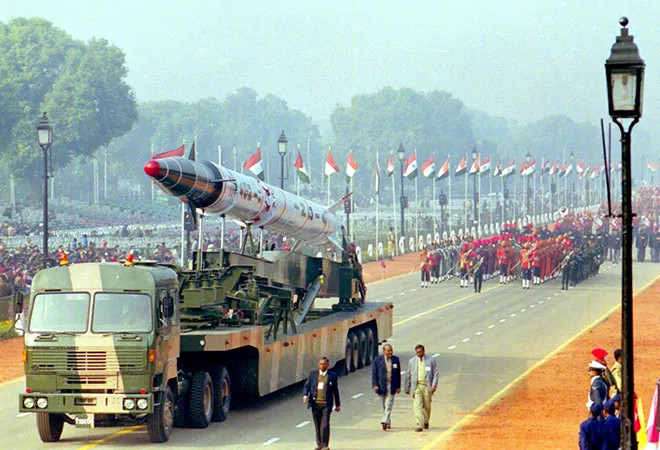Twenty-five years after its drafting, India’s nuclear doctrine continues to hold significant relevance, reflecting its role as a cornerstone of the nation’s security strategy. The doctrine, first formalized in 1999, was designed to address the complex dynamics of nuclear deterrence in South Asia and remains pertinent in the context of evolving regional and global security environments.

Source:- news 18
The core tenets of India’s nuclear doctrine—no-first-use (NFU) policy, credible minimum deterrence, and a focus on retaliatory strikes—remain central to its strategic posture. The NFU policy, which asserts that India will only use nuclear weapons in retaliation to a nuclear attack, underlines a commitment to preventing nuclear conflict and avoiding the first use of such devastating weapons. This stance helps maintain stability in the region by reducing the likelihood of nuclear escalation.
Source:- BBC news
Credible minimum deterrence, another key aspect of the doctrine, ensures that India maintains a sufficient and survivable nuclear arsenal to deter any potential adversary. This principle continues to be relevant as it allows India to project strength and deter aggression without engaging in an arms race. The focus on maintaining a balanced and credible deterrent also underscores India’s commitment to strategic stability and peace.
The doctrine’s emphasis on a “no use against non-nuclear weapon states” approach aligns with India’s broader policy of non-proliferation and its commitment to global nuclear disarmament. Despite changes in international relations and advancements in technology, this approach reflects India’s principled stance on nuclear weapons and its desire to minimize their role in international politics.
Moreover, as geopolitical tensions and technological advancements continue to evolve, India’s nuclear doctrine provides a framework for adapting to new challenges while ensuring that its core principles of deterrence and stability remain intact.
In summary, India’s nuclear doctrine retains its relevance by providing a stable foundation for national security, reinforcing deterrence, and upholding a commitment to responsible nuclear stewardship.
Share your views in the comments

